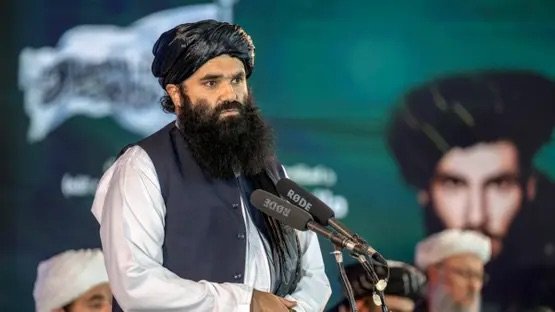The United States has removed financial bounties on three senior Taliban leaders, including Sirajuddin Haqqani, Afghanistan’s interior minister and the head of the notorious Haqqani network, which was responsible for numerous deadly attacks against the country’s former Western-backed government.
Sirajuddin Haqqani, who publicly admitted to orchestrating a January 2008 attack on Kabul’s Serena Hotel that killed six people, including American citizen Thor David Hesla, no longer appears on the U.S. State Department’s Rewards for Justice website. However, as of Sunday, his wanted poster remained on the FBI’s website.
Interior Ministry spokesman Abdul Mateen Qani confirmed that the U.S. had revoked the bounties placed on Sirajuddin Haqqani, Abdul Aziz Haqqani, and Yahya Haqqani. “These three individuals are two brothers and one paternal cousin,” Qani told The Associated Press.
The Haqqani Network’s Legacy of Violence
The Haqqani network emerged as one of the deadliest factions of the Taliban after the U.S.-led invasion of Afghanistan in 2001. It carried out suicide bombings, roadside attacks, and high-profile assaults on key locations, including the U.S. and Indian embassies in Kabul, the Afghan presidential palace, and other strategic sites. The group has also been accused of extortion, kidnappings, and other criminal activities.
Despite its violent past, Taliban officials see the removal of the bounties as a step toward normalization in international relations.
Diplomatic Overtures and the Path to Normalization
Zakir Jalaly, an official from the Taliban’s Foreign Ministry, linked the U.S. decision to broader diplomatic efforts, including the Taliban’s recent release of American citizen George Glezmann. He described the development as a sign that both sides were “moving beyond the effects of the wartime phase and taking constructive steps to pave the way for progress” in relations.
“This is a positive example of pragmatic and realistic engagement between the two governments,” Jalaly said.
Another Taliban official, Shafi Azam, echoed these sentiments, noting that the group had also taken control of Afghanistan’s embassy in Norway. While full international recognition remains elusive, the Taliban view these diplomatic openings as a sign of progress.
Since the Taliban’s takeover of Afghanistan in August 2021, only a handful of countries have engaged with the group diplomatically. China has been the most prominent nation to formally accept a Taliban diplomat, while Qatar has served as a key mediator between the Taliban and Western nations. The U.S. has also engaged in talks with the Taliban, despite ongoing concerns over human rights violations, particularly restrictions on women and girls.
A Partial Rehabilitation for Haqqani?
Sirajuddin Haqqani has at times criticized the Taliban’s internal decision-making, authoritarian tendencies, and alienation of Afghan citizens. Though he remains under UN sanctions, he has been allowed to travel internationally in the past year. His visits have included meetings with UAE leadership and a pilgrimage to Saudi Arabia, marking his first trips abroad since the Taliban regained power.
Ibraheem Bahiss, a senior analyst with the International Crisis Group, suggested that the removal of the bounties represents a diplomatic win for the Taliban. The move signals that the U.S. is willing to reward internal compromises within the Taliban leadership, even if those changes do not yet translate into broader policy shifts.
Bahiss noted that while the international community has repeatedly demanded that the Taliban lift restrictions on women and girls, these demands have come without clear incentives. The U.S. lifting the bounties suggests that small diplomatic gestures may be possible.
“For the Taliban, the removal of sanctions is more important than official recognition,” Bahiss explained. “Sanctions have a tangible impact. They restrict business, limit travel, and isolate officials. That’s why this will be seen as a victory.”
However, while Haqqani’s international standing appears to be improving, Taliban supreme leader Hibatullah Akhundzada remains highly isolated. His hardline policies—especially severe restrictions on women’s rights—have drawn global condemnation. Some experts believe he could face charges from the International Criminal Court for crimes against women, further complicating the Taliban’s quest for legitimacy on the world stage.

 English
English



























































